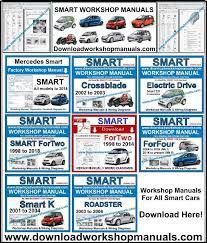
wrmanual wrmanual
Dhaka, Dhaka
You have no groups that fit your search
wrmanual wrmanual
5 months ago
The Comprehensive Guide to Workshop Manuals: Unlocking the Power of DIY Auto Maintenance
Introduction:
Workshop manuals, often referred to as service manuals or repair manuals, serve as invaluable resources for both professional mechanics and avid DIY enthusiasts. These manuals are detailed guides that provide step-by-step instructions, technical specifications, and diagrams to assist in the maintenance, repair, and troubleshooting of vehicles. In this comprehensive guide, we will explore the significance of workshop manuals, their evolution, and how they empower individuals to take control of their vehicle maintenance.
I. Evolution of Workshop Manuals:
Workshop manuals have come a long way since the early days of automotive engineering. In the early 20th century, as automobiles became more widespread, manufacturers began to provide basic manuals to accompany their vehicles. These manuals covered fundamental aspects of vehicle operation and maintenance. Over time, as automotive technology advanced, so did the complexity of vehicles, leading to the development of more sophisticated workshop manuals.
Today's workshop manuals are highly detailed and specific, catering to the intricate needs of modern vehicles. They are not limited to automobiles but extend to motorcycles, trucks, and other motorized machinery. The evolution of workshop manuals mirrors the evolution of automotive technology, with manuals now available in both traditional print and digital formats, making them more accessible than ever.
II. Components of Workshop Manuals:
A. Technical Specifications:
Workshop manuals provide detailed technical specifications for each vehicle component. This includes information on engine size, power output, torque ratings, and other critical details. Understanding these specifications is crucial for performing accurate repairs and maintenance.
B. Step-by-Step Procedures:
One of the most valuable aspects of workshop manuals is the inclusion of step-by-step procedures for various tasks. Whether it's changing the oil, replacing brake pads, or tackling more complex engine repairs, these manuals guide users through each process with detailed instructions and accompanying illustrations.
C. Diagrams and Schematics:
Clear and concise diagrams and schematics are integral to workshop manuals. These visual aids help users understand the layout and configuration of different vehicle systems. Whether it's the intricacies of an engine, the complexities of a transmission, or the nuances of an electrical system, visual representations enhance comprehension and accuracy during repairs.
D. Troubleshooting Guides:
Workshop manuals include troubleshooting guides to help diagnose issues effectively. These guides often present common problems, their possible causes, and step-by-step procedures to identify and resolve issues. This empowers both seasoned mechanics and novices to systematically address problems and find solutions.
III. Empowering the DIY Enthusiast:
A. Cost Savings:
One of the primary advantages of using workshop manuals for DIY auto maintenance is the potential for significant cost savings. Instead of relying on professional mechanics for routine tasks, individuals can confidently perform oil changes, brake replacements, and other maintenance procedures themselves. This not only saves money on labor costs but also allows users to choose high-quality aftermarket parts, potentially extending the lifespan of their vehicles.
B. Knowledge Empowerment:
Workshop manuals are educational tools that empower users with a deeper understanding of their vehicles. DIY enthusiasts can learn about the intricacies of engines, transmissions, and other systems. This knowledge not only enhances their ability to perform repairs but also fosters a sense of connection and ownership of their vehicles.
C. Customization and Modifications:
For those who love customizing or modifying their vehicles, workshop manuals are indispensable. Whether it's installing aftermarket parts, upgrading suspension systems, or enhancing engine performance, these manuals provide the necessary guidance. This allows individuals to tailor their vehicles to meet their specific preferences and requirements.
D. Confidence Building:
Engaging in DIY auto maintenance using workshop manuals instills confidence in individuals who might otherwise feel intimidated by the complexities of vehicle repair. As users successfully complete tasks following the manual's guidance, they build confidence in their abilities, encouraging them to tackle more challenging projects.
IV. Digital Workshop Manuals in the Digital Age:
With the advent of the internet and digital technology, workshop manuals have transitioned from traditional print formats to digital platforms. Digital manuals offer several advantages, including:
A. Accessibility:
Digital workshop manuals are easily accessible online, allowing users to download them instantly. This accessibility is particularly beneficial when immediate information is needed, such as during roadside repairs.
B. Search Functionality:
Digital manuals often include search functionality, making it easy for users to find specific information quickly. This feature enhances efficiency during repairs by eliminating the need to flip through pages to locate relevant content.
C. Interactive Features:
Some digital workshop manuals come with interactive features such as clickable links, multimedia content, and interactive diagrams. These features enhance the learning experience and make it even more engaging for users.
D. Regular Updates:
In the rapidly evolving automotive industry, digital workshop manuals can be regularly updated to reflect the latest advancements and modifications in vehicle technology. This ensures that users always have access to the most current information.
Conclusion:
Workshop manuals are indispensable tools that bridge the gap between professional mechanics and DIY enthusiasts. As vehicles continue to advance in complexity, these manuals play a crucial role in empowering individuals to take control of their vehicle maintenance. Whether in traditional print or digital format, workshop manuals are key to fostering a sense of ownership, knowledge, and confidence among those who seek to understand and maintain their vehicles. As we continue into the digital age, the evolution of workshop manuals will undoubtedly keep pace with technological advancements, ensuring that they remain an essential resource for automotive enthusiasts worldwide.
0 likes · 0 comments
Portfolio & Serviceswrmanual wrmanual
5 months ago
The Indispensable Role of Workshop Manuals in Empowering Mechanics and DIY Enthusiasts
Introduction:
Workshop manuals, often considered the unsung heroes in the realm of automotive and machinery maintenance, play a pivotal role in empowering mechanics and do-it-yourself (DIY) enthusiasts. These comprehensive guides serve as indispensable companions, providing a wealth of information on troubleshooting, repairs, and maintenance procedures for a wide array of vehicles and equipment. In this article, we'll delve into the significance of workshop manuals, exploring how they facilitate efficient problem-solving, enhance skill development, and contribute to the overall reliability and longevity of machines.

- The Foundation of Knowledge:
Workshop manuals serve as the foundation upon which a mechanic's expertise is built. These manuals are meticulously crafted documents that encapsulate the intricate details of various systems within a vehicle or machinery. They provide in-depth information about the components, their functions, and their interdependencies. From engine specifications to electrical schematics, workshop manuals are comprehensive repositories of knowledge.
Having access to such detailed information is invaluable, especially in an era where vehicles and machinery are becoming more complex. Modern engines, for instance, are equipped with advanced technologies, and workshop manuals bridge the gap between these complexities and a mechanic's understanding. This wealth of knowledge enables professionals and DIY enthusiasts alike to diagnose issues accurately and carry out repairs with precision.
- Troubleshooting and Diagnostic Assistance:
One of the primary functions of workshop manuals is to guide mechanics through the troubleshooting process. When a vehicle or machine malfunctions, these manuals provide step-by-step procedures to identify the root cause of the problem. Whether it's an issue with the electrical system, engine performance, or transmission, the manual acts as a roadmap, leading mechanics to the source of the problem.
Diagnostic procedures outlined in workshop manuals often include the use of specialized tools and equipment. This not only aids in accurate problem identification but also emphasizes the importance of having the right tools for the job. As technology advances, workshop manuals are updated to incorporate the latest diagnostic techniques, ensuring that mechanics stay abreast of industry developments.
- Skill Development and Training:
Workshop manuals are invaluable tools for skill development among mechanics and DIY enthusiasts. They serve as self-paced training modules, allowing individuals to enhance their understanding of specific systems and components. Novice mechanics can start with basic repairs and gradually progress to more complex tasks, building confidence and competence along the way.
Furthermore, workshop manuals foster a culture of continuous learning. Mechanics can refer to these manuals to stay updated on the latest repair techniques, emerging technologies, and best practices. This not only benefits individual mechanics but also contributes to the overall professional growth of the automotive and machinery maintenance industry.
- Time and Cost Efficiency:
Efficiency is crucial in any workshop or garage. Workshop manuals contribute significantly to time and cost efficiency by streamlining the repair process. Instead of relying on trial and error or spending hours diagnosing a problem, mechanics can refer to the manual for precise guidance. This not only reduces the time spent on each repair but also minimizes the likelihood of errors, preventing potential damage that could result from incorrect procedures.
In the long run, the time saved directly translates into cost savings. Efficient repairs mean fewer billable hours, and accurate diagnostics reduce the chances of misdiagnoses, which could lead to unnecessary part replacements. Workshop manuals, therefore, contribute to the economic sustainability of repair businesses and enhance the cost-effectiveness of DIY projects.
- Ensuring Compliance and Safety:
Workshop manuals play a crucial role in ensuring that repairs and maintenance procedures adhere to manufacturer specifications and industry standards. Following the recommended guidelines not only preserves the integrity of the vehicle or machinery but also upholds safety standards. This is particularly important in industries where compliance with safety regulations is paramount, such as aviation, construction, and transportation.
Moreover, workshop manuals often include safety precautions and guidelines to protect mechanics and operators from potential hazards. This emphasis on safety underscores the responsibility of mechanics to prioritize not only the functionality of the machine but also the well-being of those interacting with it.
- Digital Transformation and Accessibility:
In the digital age, workshop manuals have undergone a transformation, moving from traditional printed formats to digital platforms. Digital manuals offer several advantages, including enhanced search functionality, interactive diagrams, and multimedia content. Mechanics can access these manuals on computers, tablets, or even smartphones, enabling them to carry a wealth of information right into the field.
The accessibility of digital workshop manuals also promotes collaboration and knowledge sharing within the industry. Mechanics can quickly share relevant sections or troubleshoot issues collectively, fostering a sense of community and mutual support.
- Challenges and Future Outlook:
While workshop manuals have come a long way in providing comprehensive guidance, challenges persist. The rapid evolution of technology in vehicles and machinery poses a continuous challenge to keep manuals updated. Manufacturers and publishers need to adapt swiftly to changes in technology to ensure that mechanics have the most accurate and current information at their fingertips.
Additionally, efforts to make workshop manuals more user-friendly and accessible, especially for individuals with varying levels of technical expertise, will contribute to their widespread adoption. The integration of augmented reality (AR) and virtual reality (VR) technologies into workshop manuals could further enhance the learning experience and improve comprehension of complex repair procedures.
In conclusion, workshop manuals are the unsung heroes of the automotive and machinery maintenance world. Their role in providing knowledge, facilitating troubleshooting, supporting skill development, and ensuring safety cannot be overstated. As technology continues to advance, the evolution of workshop manuals will be crucial in empowering mechanics and DIY enthusiasts to navigate the complexities of modern machines confidently. Embracing digital transformation and addressing ongoing challenges will be key to ensuring that workshop manuals remain indispensable tools for the maintenance professionals of today and tomorrow.
0 likes · 0 comments
DesignDo you want to manage your own group?
